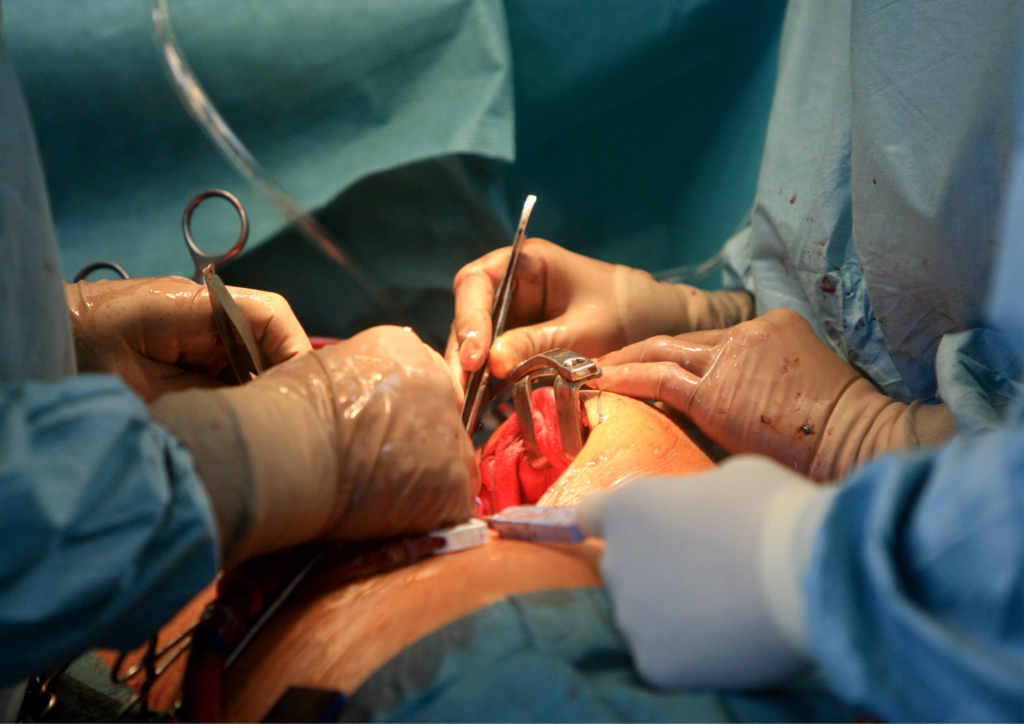Everything You Need to Know About Heart Bypass Surgery
Coronary Artery Bypass Grafting (CABG), commonly known as heart bypass surgery, is one of the most effective procedures for treating severe coronary artery disease (CAD). If you or a loved one has been advised to undergo CABG, it’s normal to have questions.

In this post, we answer the most frequently asked questions about Coronary Artery Bypass Grafting CABG in clear, simple language to help you understand the procedure, risks, recovery, and life after surgery.
Table of Contents
🫀 What is CABG?
CABG stands for Coronary Artery Bypass Grafting. It is a surgical procedure to improve blood flow to the heart in people with blocked or narrowed coronary arteries.
In CABG, the surgeon takes a healthy blood vessel from your leg, arm, or chest and uses it to create a new path (bypass) around the blocked artery, allowing oxygen-rich blood to reach the heart muscle.
🧠 Why is CABG done?
It is performed when:
- There is significant blockage in multiple coronary arteries
- The left main artery (which supplies most of the heart muscle) is narrowed
- Symptoms like chest pain (angina) or shortness of breath are not controlled with medications or stenting
- There is a high risk of heart attack or other cardiac complications
📋 What are the different types of CABG?
- Traditional CABG: Involves a large chest incision and use of a heart-lung machine
- Off-pump CABG (Beating heart surgery): Done without stopping the heart
- Minimally invasive CABG: Performed through smaller incisions
The best approach depends on your condition and the surgeon’s expertise.
⏱️ How long does CABG surgery take?
Typically, the procedure lasts 3 to 6 hours, depending on the number of grafts needed and whether other surgeries (like valve repair) are done simultaneously.
🏥 How long is the hospital stay after CABG?
- ICU stay: 1–2 days
- Total hospital stay: 5–7 days
This can vary based on the patient’s age, overall health, and recovery speed.
😷 What are the risks of CABG?
Like any major surgery, Coronary Artery Bypass Grafting has some risks:
- Bleeding
- Infection
- Stroke
- Arrhythmias (irregular heartbeat)
- Kidney problems
However, with modern surgical techniques and experienced surgeons, the success rate is very high—especially in otherwise healthy individuals.
❤️ What is recovery like after CABG?
Recovery involves:
- 1–2 weeks of rest at home post-discharge
- Avoiding strenuous activities or lifting heavy objects for 6 weeks
- Cardiac rehabilitation programs to gradually build strength and improve heart health
Most patients resume normal activities within 8–12 weeks.
🍎 What lifestyle changes are needed after CABG?
Bypass surgery treats the blockages but doesn’t cure heart disease. Long-term health depends on your lifestyle choices:
- Eat a heart-healthy diet (low in saturated fat, high in fiber)
- Exercise regularly as advised by your doctor
- Quit smoking and avoid alcohol excess
- Take your prescribed medications regularly
- Manage stress and get regular checkups
❓ Can blockages come back after CABG?
Yes, new blockages can form if lifestyle changes and medications are not followed. That’s why it’s important to treat Coronary Artery Bypass Grafting as the beginning of a new, healthier phase of life—not the end of treatment.
👨⚕️ How do I choose the right hospital or surgeon for CABG?
Look for:
- Board-certified Cardiothoracic Surgeons
- High-volume cardiac centers (experience improves outcomes)
- Reputation for excellent post-operative care and cardiac rehab
Maruthi Multispecialty Hospital, Guntur is known for advanced cardiac care and a skilled surgical team led by Dr. Maruthi Prasad, a Cardiothoracic and Vascular Surgeon.
📞 Have More Questions?
Our team is here to help. If you or your loved one has been advised CABG, schedule a consultation today to understand your options better.
🏷️ SEO Keywords Used:
- Coronary Artery Bypass Grafting
- Heart Bypass Surgery
- Frequently Asked Questions about CABG
- Recovery after CABG
- Coronary Artery Bypass Grafting

